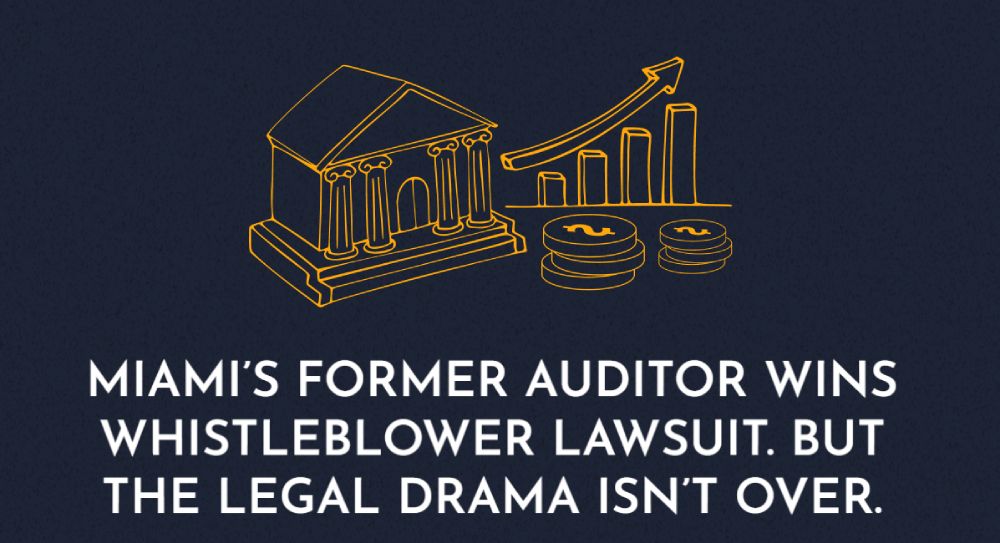
Whistleblower Lawsuit
Miami’s former top auditor won a whistleblower lawsuit against the city Monday when a jury ruled he was ousted in retaliation for uncovering the city’s shady financial maneuvers and cooperating with a Securities and Exchange Commission inquiry.
After a weeklong trial in Miami-Dade civil court, the six-person jury ruled on Monday that Miami owes the city’s long-ousted former auditor general, Victor Igwe, $931,587 — the majority of the $1.2 million in back pay Igwe was seeking.
But it’s not that simple.
One legal question remains to be hashed out after the jurors also ruled Igwe had not exhausted all of his administrative options before suing — a legal requirement in order to be eligible for damages. The city has argued Igwe had no right to sue because he had not gone through an internal appeals process in City Hall first. Igwe’s attorneys maintain that because of his position as auditor general, a watchdog job created after Miami’s financial meltdown in the late 1990s, Igwe wasn’t required to go through the internal process.
The resolution of that question will have bearing on whether Igwe will receive that sum. Regardless, Igwe and his legal team notched a significant victory Monday.
“The rightness of his position and the wrongness of the city has been established by this verdict,” said Karen Coolman Amlong, one of Igwe’s attorneys.
Meanwhile, Miami City Hall was dealt a second loss in the legal drama stemming from the SEC investigation. In 2016, a federal jury ruled the city had defrauded investors by playing shell games with the city’s budget. The city hid losses from the public and municipal bond investors by improperly shifting money around from one fund to another, that jury found.
Miami agreed post-trial to pay a $1 million civil penalty to settle the earlier case. Now, the city’s attorneys have to decide their next move in Igwe’s case.
“We are exploring our appellate options,” said City Attorney Victoria Mendez after Monday’s verdict.
The SEC’s inquiry was preceded by scathing audits issued by Igwe, and he later cooperated with investigators in the case that led to the $1 million settlement. In 2011, Igwe’s contract with the city was not renewed. Igwe claims the contract was allowed to expire as retaliation for his work to uncover the financial problems.
During closing arguments Monday, the city painted Igwe as a meticulous, detailed auditor who could not have possibly forgotten to seek a contract extension at the end of this term. The city’s attorney for labor matters, Kevin R. Jones, insisted Igwe knew his contract was running out and simply failed to get his renewal on a City Commission agenda in time. He also suggested Igwe might have planned to sue all along.
He also disputed the suggestion that commissioners were retaliating against Igwe.
“You can’t find one email, not a phone log, nothing, to support that,” he told jurors.
Amlong argued that the city wanted to passively get rid of Igwe without a public vote explicitly letting him go. She said the commission, in order to avoid the bad optics that would surround the ousting of a watchdog who was simply doing his job, allowed his contract to expire and moved on.
“The city’s version of events does not makes sense,” she said.
This article was first published on MiamiHerald.com.

